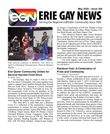New CDC Efforts Offer Individuals Vital Information to Reduce Personal HIV Risk
December 7, 2015 - The Centers for Disease Control and Prevention (CDC) today unveiled two awareness and education efforts designed to reduce new HIV infections by helping people take charge of their health – a new national HIV testing campaign and the beta version of an online tool to help individuals assess and reduce their risk of acquiring or transmitting HIV. The announcements came at the 2015 National HIV Prevention Conference in Atlanta, Georgia, the only major conference in the United States to focus exclusively on HIV prevention.
The national HIV testing campaign, Doing It, features everyday people, community leaders, and celebrities emphasizing that HIV testing is a smart choice to stay healthy and protect yourself and your partners. Campaign vignettes highlight people from a spectrum of communities, including gay, bisexual, heterosexual, African-American, Latino, white, men, women, and transgender people. The campaign debuted online today (www.cdc.gov/doingit) and national ads will begin soon.
CDC is also piloting a new comprehensive online HIV Risk Reduction Tool (www.cdc.gov/hivrisk), which lets people get customized information on behaviors that place them at risk for HIV and strategies to reduce their risk. The tool helps people determine how best to protect themselves and their partners. The interactive tool allows users to compare the risks of different sexual activities and to see how one or a combination of prevention methods – such as condoms, pre-exposure prophylaxis (PrEP), or HIV treatment for those living with HIV – could change their level of protection. Issued as a beta release, CDC anticipates continued revision and improvement of the tool over time, as the agency pilots the tool with users and incorporates feedback and new findings.
"Both of these efforts are designed to help people take control of their health, make informed choices, and reduce their risk for getting and transmitting HIV," said Jonathan Mermin, M.D., director of CDC's National Center for HIV/AIDS, Viral Hepatitis, STD, and TB Prevention. "With more effective prevention options than ever before, it is essential that we provide accurate information. Now people can choose the best strategies for protecting themselves and their partners from HIV. The HIV Risk Reduction Tool provides everyone – regardless of HIV status – a one-stop resource for information to guide their decisions about reducing risk."
The risk reduction tool and new testing campaign are part of CDC's ongoing efforts to promote the full range of high-impact HIV prevention strategies.
Testing for HIV is the vital first step in linking infected individuals to care and preventing transmission to others. CDC recommends that everyone get tested for HIV at least once as part of routine health care, and that people with certain risk factors get tested more often. People with more than one sex partner, people with sexually transmitted infections (STIs), sexually active gay and bisexual men, and people who inject drugs are likely to be at high risk and should get tested at least once a year. Some sexually active gay and bisexual men may benefit from more frequent testing.
Once individuals know their HIV status, they are better able to take charge of their own health and encourage partners to do the same. People who test negative have more information to help them stay healthy and continue to protect themselves. People who test positive are encouraged to seek medical care as soon as possible with the goal of getting HIV treatment to become suppressed virally. Available treatments are very effective. They help people with HIV live healthier lives -- and they reduce their risk of spreading the infection to others.
"We have more tools to effectively prevent HIV transmission and acquisition than ever before – it's now a matter of making sure that people understand what works so they can make fully informed decisions about risk," said Eugene McCray, M.D., director of CDC's Division of HIV/AIDS Prevention. "We must do everything we can to increase HIV testing and access to all available strategies – including pre-exposure prophylaxis (PrEP), condoms, behavioral interventions, as well as care and treatment for those living with HIV."
The 2015 National HIV Prevention Conference, convened by the CDC and many public, private and government agencies, is taking place in Atlanta, December 6-9. This meeting focuses exclusively on the full spectrum of HIV prevention, giving community organizations, public health professionals, clinicians, advocates, and other interested individuals the opportunity to exchange information about effective prevention approaches. For more information, please visit www.cdc.gov/nhpc.
For more information, visit www.cdc.gov/nchhstp/newsroom.
CDC works 24/7 protecting America's health, safety and security. Whether diseases start at home or abroad, are curable or preventable, chronic or acute, stem from human error or deliberate attack, CDC is committed to respond to America's most pressing health challenges.






